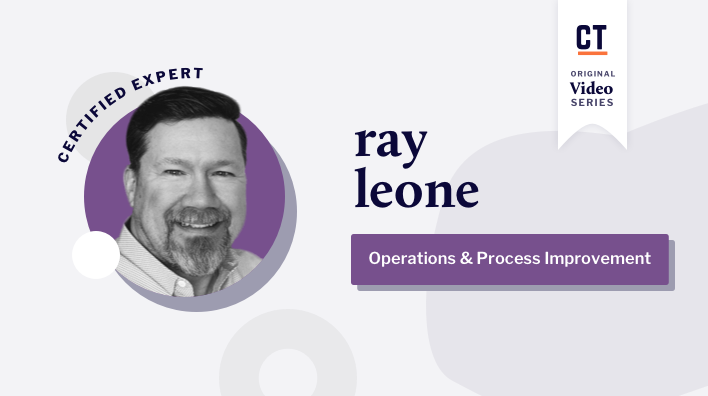The Best Process Improvement Consultants Deliver Predictability

Ray Leone is the managing principal of Osetion, an independent process improvement consultancy that helps clients build, grow, and evolve their professional service businesses. A former consultant at Accenture, Leone helps organizations with operational and process improvement efforts to keep pace in a rapidly changing environment.
“The need to deliver predictable, repeatable outcomes is at the core of what operations and process improvement is all about,” says Leone.
Why Hire an Operations and Process Improvement Consultant
A skilled process improvement consultant will deliver more than just a flowchart or new process map. The right consultant will provide a framework for driving effective change based on the consultant’s experience in a particular industry or business focus. That requires a deeper understanding of the client organization’s goals and objectives.
“It’s about understanding, end-to-end, what the outcome of that experience is supposed to be, what the process should be delivering, and then being able to guide and advise the client on how to effectively deliver that outcome,” says Leone.
Many people — including those within the organization — are capable of documenting and mapping out a business process. However, without a path to operationalizing improvements, those documents and maps become “shelfware” that never gets used. The decision to hire an operations and process improvement consultant should be based on the perspective and experience the consultant can offer.
“If you want expertise on how to actually improve and innovate on a process, you need someone with industry and or subject matter expertise in that particular area, as well as someone who understands how to improve a process,” says Leone.
How to Find the Right Process Improvement Consultant
The best time to bring in a consultant for operations and process improvement, says Leone, is before you’ve developed a strategy and approach for the project. The right consultant will provide insights and guidance on achieving the desired outcomes within the organization’s overall strategy.
The next decision is whether to hire a large consulting firm or an independent consultant or a small firm. For many projects, a smaller consultancy is a better fit because the consultant is more invested in the outcome and more adaptable to changing conditions.
“Their interest is wholehearted with the particular client because each client can make or break them,” says Leone. “So they’re willing to work more flexibly to meet your needs.”
The three qualities clients should look for in an independent consultant are:
- Experience in the business processes involved in the project
- Industry experience and an understanding of the regulations, requirements, and restrictions of that industry
- A proven framework for delivering predictable and repeatable results
Skills That A Process Improvement Consultant Offers
While nearly every operations and process improvement consultant will possess “hard” skills, such as creating process maps, the most important skills to look for are less obvious.
“The first and foremost skill is objectivity,” says Leone. “It’s important to understand objectively what outcome the customer is looking for, and understand what they have in terms of capabilities and existing processes, and then bring subject matter expertise to guide and advise each client on how to move from where they are now to where they need to be in order to deliver those outcomes.”
You can’t fake knowledge and experience, says Leone.
“When you’re working with a client, you can’t fake your way through. There will always be someone who will call you out and you’ll jeopardize your reputation.”
Consultants, therefore, need to recognize and communicate their limitations as service providers, which Leone says is just as important as maintaining objectivity and providing the client with input, advice, and guidance.
Successful Process Improvement
While there are many ways to fail a process improvement project, the most successful projects share some common features. The first is early involvement from an experienced independent consultant. The most successful projects Leone has delivered, including driving growth targets in the double and triple digits, have shared this trait.
“It’s essential for the consultant to be involved from the very beginning to understand what the client is trying to accomplish so they can effectively drive strategy and execution,” says Leone. “Most success comes from a comprehensive engagement from strategy through to delivery.”
The second key to a successful process improvement engagement is stakeholder alignment. Nearly every process, says Leone, involves an initiating event that then leads to a series of handoffs throughout the organization. Without buy-in from stakeholders across the entire process, your chances of delivering a successful process improvement are minimal.